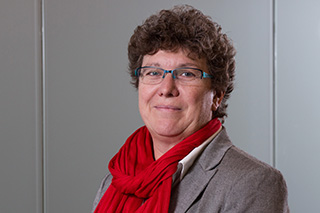Leading and Listening: Supporting its people
 Just over one year ago, Queen’s University went remote due to the growing pandemic. Students moved from the classroom to their homes, faculty made the switch to teaching remotely and staff began working from home to provide support.
Just over one year ago, Queen’s University went remote due to the growing pandemic. Students moved from the classroom to their homes, faculty made the switch to teaching remotely and staff began working from home to provide support.
Jill Atkinson, Associate Dean (Teaching and Learning) in the Faculty of Arts and Science (FAS), was one of the key players in ensuring this transition went smoothly and now, with things slowly reopening, is one of the team involved in bringing everyone back to campus safely.
“In the early days of the pandemic, our plan was to increase support for instructors by building capacity within departments,” explains Dr. Atkinson. “We identified faculty, staff and grad students who could support the move to remote teaching and provided them with training and ongoing support.”
Dr. Atkinson explains that these designated department embedded staff were trained by FAS’ Remote Support Team to support course development and delivery. In this way the team in FAS was able to build capacity in the departments, and among the next generation of educators as well.
The Remote Support Team also provided one on one consultations, workshops and drop-in sessions for faculty throughout the summer and fall and built an onQ demonstration course for instructors.
Departmental embedded staff continued to participate in regular meetings with the FAS Remote Team to ensure they had the most recent information and the resources they needed to perform their jobs. This group has evolved into a community of practice, continuing regular check-ins, large group meetings and sharing information in the Teams space.
“Faculty leadership provided frequent and ongoing communication to ensure faculty, staff and students knew what we were doing to ensure a high-quality student learning experience while keeping it safe and equitable for those with various living situations and in different time zones,” says Dr. Atkinson. “We adhered to a set of principles including safety, equity, flexibility and transparency to guide all our planning.”
Dr. Atkinson confirmed the faculty also tried to address the challenges of remote work.
“One of the issues we faced was supporting staff, faculty, and students who do not have adequate work or study environments, reliable high speed internet connections, and who may have competing demands including supporting children or other dependents. In ASO, for example, we moved our monthly staff meetings to weekly events, added check ins and social events/spaces to combat the isolation of remote work and help support the onboarding of new staff during this time.”
A year into the pandemic and the future still uncertain, Dr. Atkinson sees several positive changes and opportunities ahead including increasing the use of technology to enhance learning, student advising and employee communication, more flexibility to accommodate employee’s schedules, , and the use of more interactive teaching techniques that engage learners.
“Despite the many challenges posed by the pandemic, looking back at this past year, I am humbled by the work done by FAS staff, our Dept. Heads, Undergraduate Chairs and their faculty members and, most of all, the forbearance and support of our students.”

